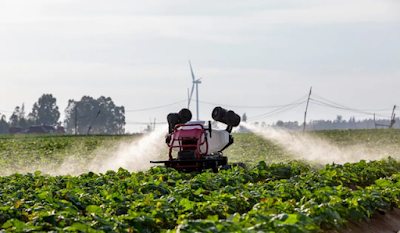In the air, plant protection drones fly and circle; in the field, planters equipped with the Beidou system drive in an orderly manner; in the pond, "Black Liqiao" turns into "chip fish", sweeping the mobile phone, every fish can be traced back to the source. In rural areas, more and more villages are using "digital brains" - online remote real-time monitoring of rural dwellings, garbage transfer stations, large-scale farms, etc., straw burning, urban and rural public space governance and other rural living environment governance Puzzles are gradually solved...

Agricultural autonomous vehicle sprays vegetable fields
According to the "2021 China Agricultural Production Digitalization Research Report", the current application of digital technology in China's agricultural production is in the process of transitioning from the application period to the development period. 5S technologies such as remote sensing technology, geographic information system and global positioning system are used in agriculture. The application is relatively mature. Big data and cloud computing are widely used and are in a period of rapid development; AI and the Internet of Things have entered the agricultural field and are gradually being applied in agricultural production. At present, the application of digital technology in production has achieved big data production monitoring, drone plant protection, refined farming, and yield forecasting.




